Julian Assange timeline: from first Swedish allegations to five years inside the Ecuadorian embassy
Whistleblower has been in a battle with Swedish authorities since 2010
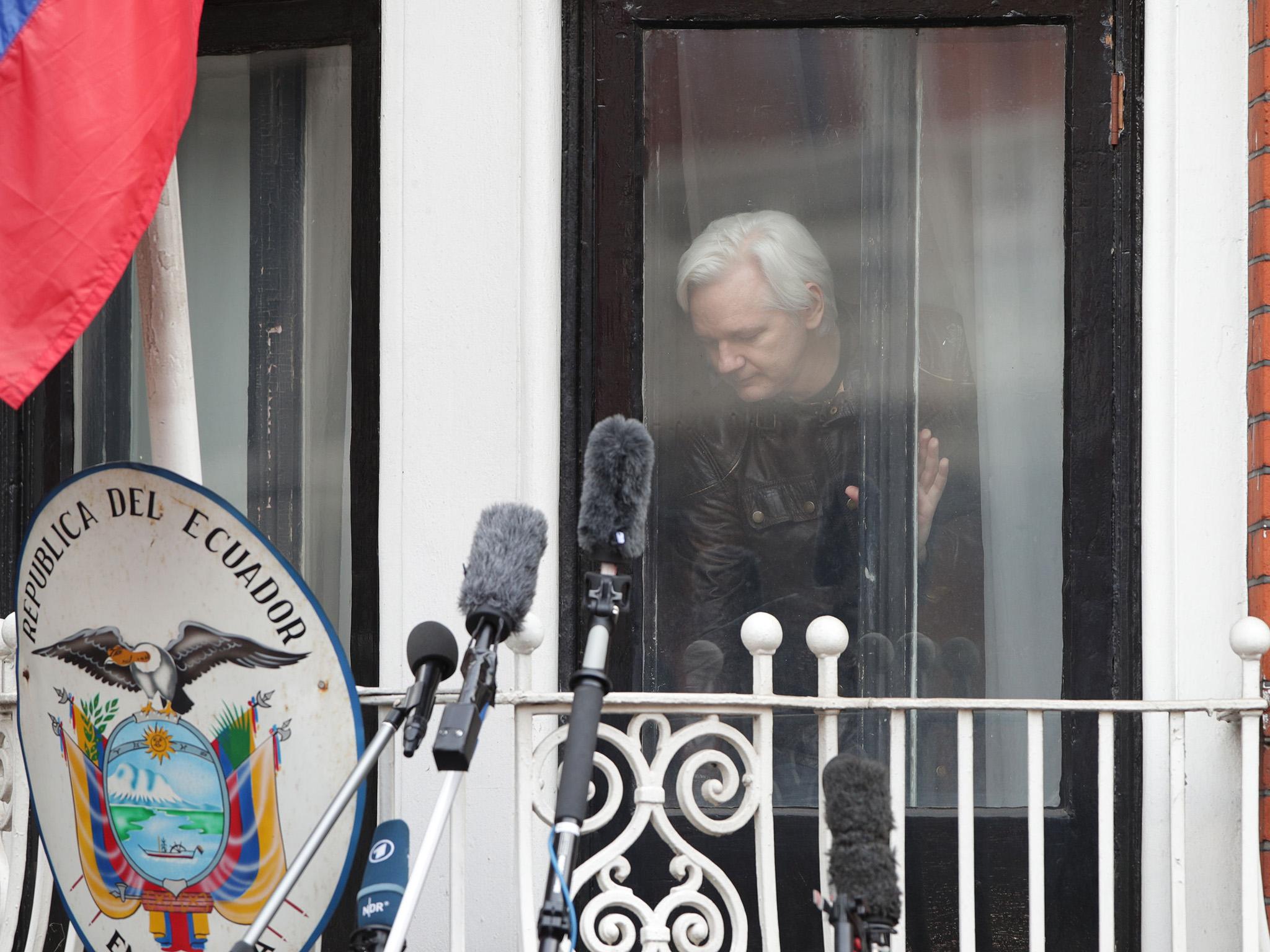
An investigation into a sex allegation against WikiLeaks founder Julian Assange has been dropped by Sweden’s director of public prosecution.
The development is the latest in a long-standing saga involving Mr Assange, who has been living inside the Ecuadorian embassy in London for almost five years.
Here are the key dates in the case:
2010
August
An arrest warrant is issued for Mr Assange for two separate allegations – one of rape and one of molestation – after he visits Sweden. He is questioned by police in Stockholm and denies the allegations.
November
Stockholm District Court approves a request to detain the WikiLeaks founder for questioning on suspicion of rape, sexual molestation and unlawful coercion. An international arrest warrant is issued by Swedish police through Interpol.
December
Mr Assange presents himself to London police and appears at an extradition hearing where he is remanded in custody. At a later hearing he is granted conditional bail but is kept behind bars after Swedish authorities challenge the decision.
He is later granted conditional bail at the High Court in London after his supporters pay £240,000 in cash and sureties.
2011
February
District Judge Howard Riddle rules Mr Assange should be extradited to Sweden and denies this would breach his human rights. Mr Assange vows to fight the decision.
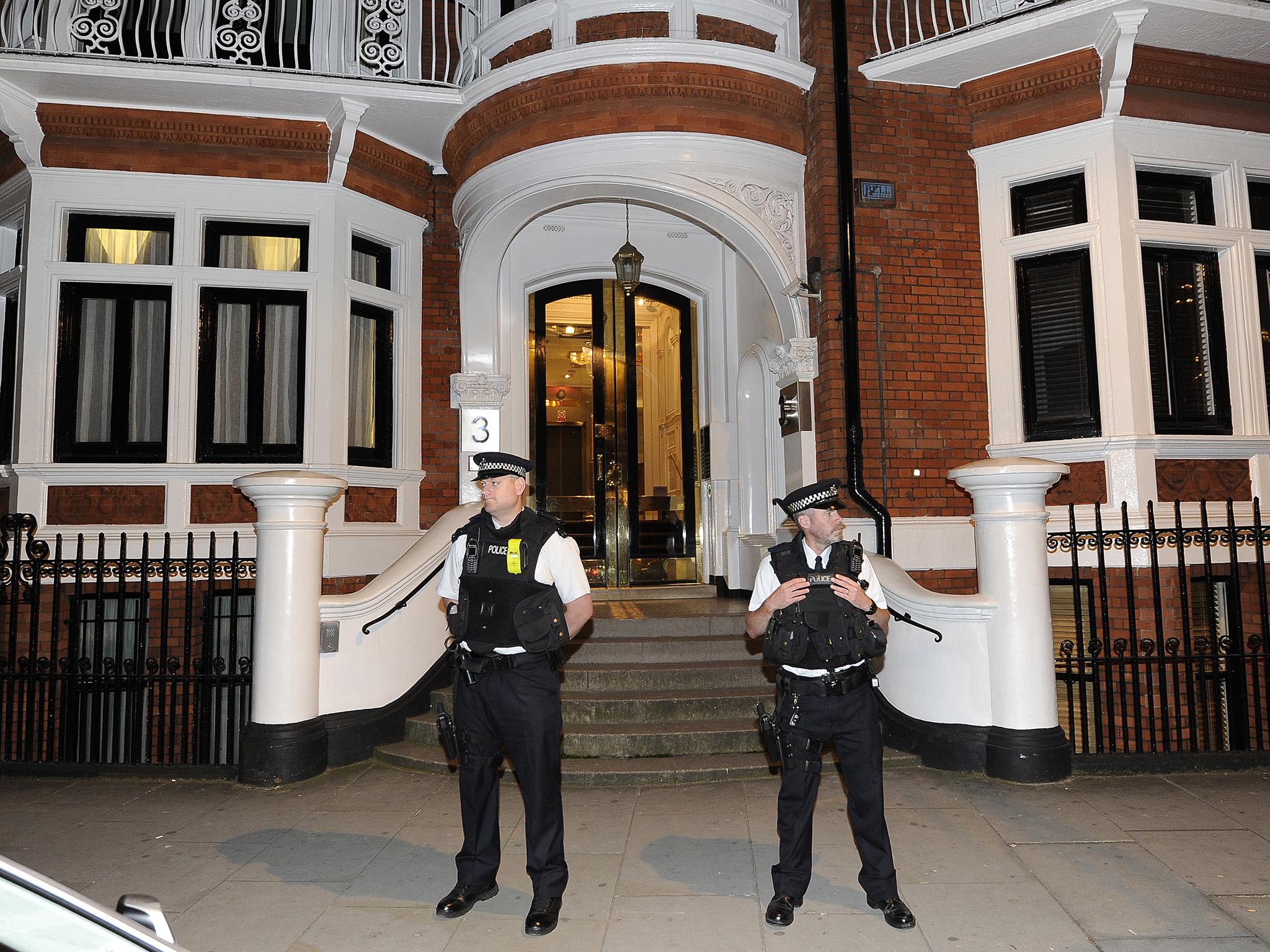
November
Mr Assange loses a High Court appeal against the decision to extradite him.
2012
May
The UK Supreme Court upholds the High Court decision in the case, ruling that extradition is lawful and can go ahead. The Supreme Court later rejects a move by Mr Assange to reopen his appeal against his extradition, saying it is “without merit”.
19 June
Mr Assange enters the Ecuadorian embassy in London, requesting political asylum. A day later, Scotland Yard confirms he will be subject to arrest for breaching his bail conditions.
16 August
Mr Assange is granted political asylum by Ecuador.
19 August
Mr Assange makes his first public appearance in two months on a balcony of the Ecuadorian embassy and calls for the US government to “renounce its witch hunt” against WikiLeaks.
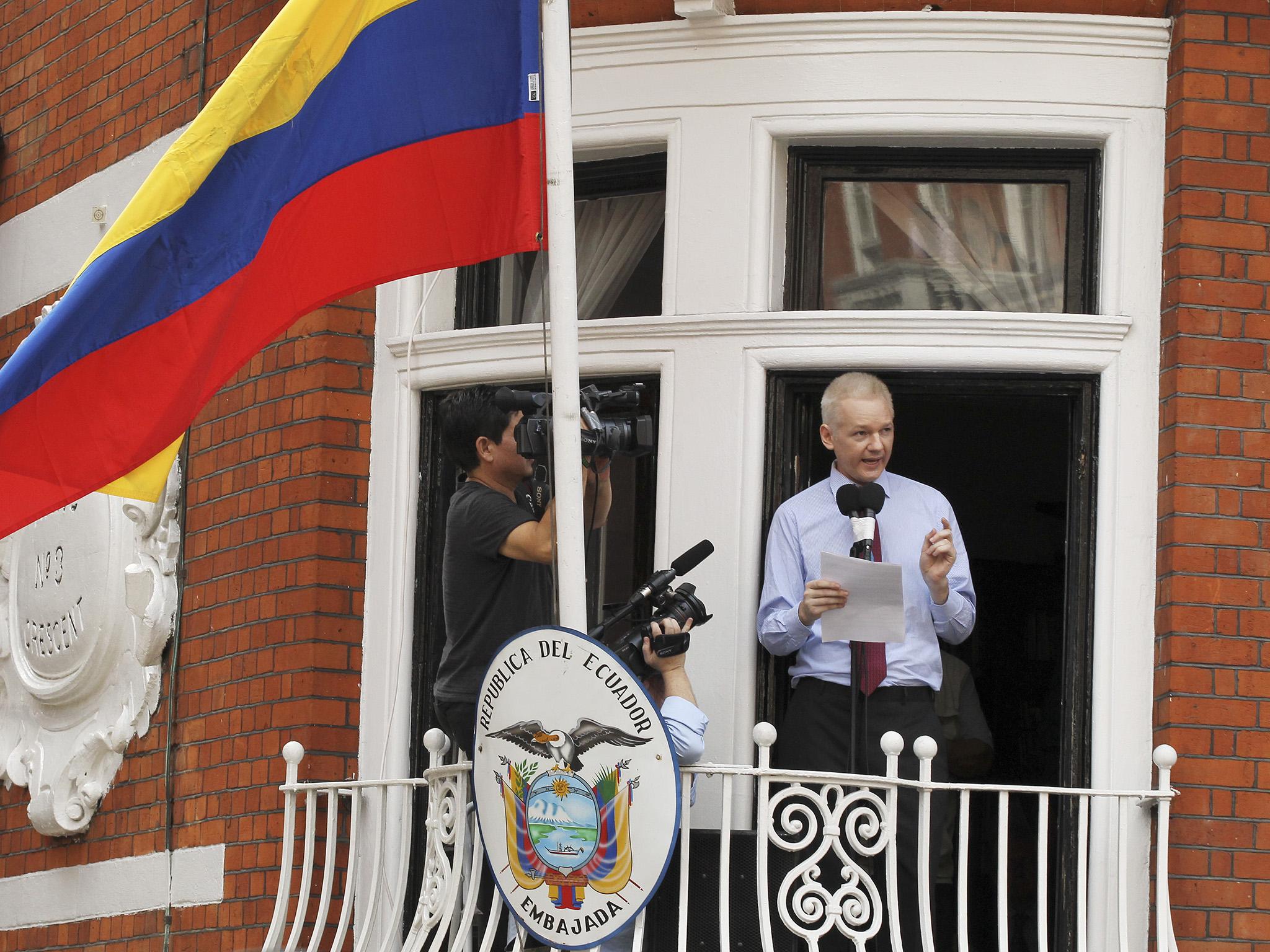
November
Ecuador’s ambassador to the UK, Ana Alban, says Mr Assange is suffering a chronic lung condition after spending months inside a one-room office at the embassy. The Ecuadorian government later plays down the health fears and says Mr Assange “does not have an urgent medical condition”.
December
Mr Assange marks the six-month anniversary inside the embassy by making another appearance on the balcony to say the “door is open” for talks to break the deadlock over his campaign to avoid extradition to Sweden.
2013
June
Mr Assange tells a group of journalists he will not leave the embassy even if sex allegations against him are dropped, because he fears moves are already under way to extradite him to the United States.
2014
July
Mr Assange loses a legal bid to have an arrest warrant issued in Sweden against him cancelled. A judge in Stockholm decided to uphold the warrant against him for alleged sexual offences against two women.
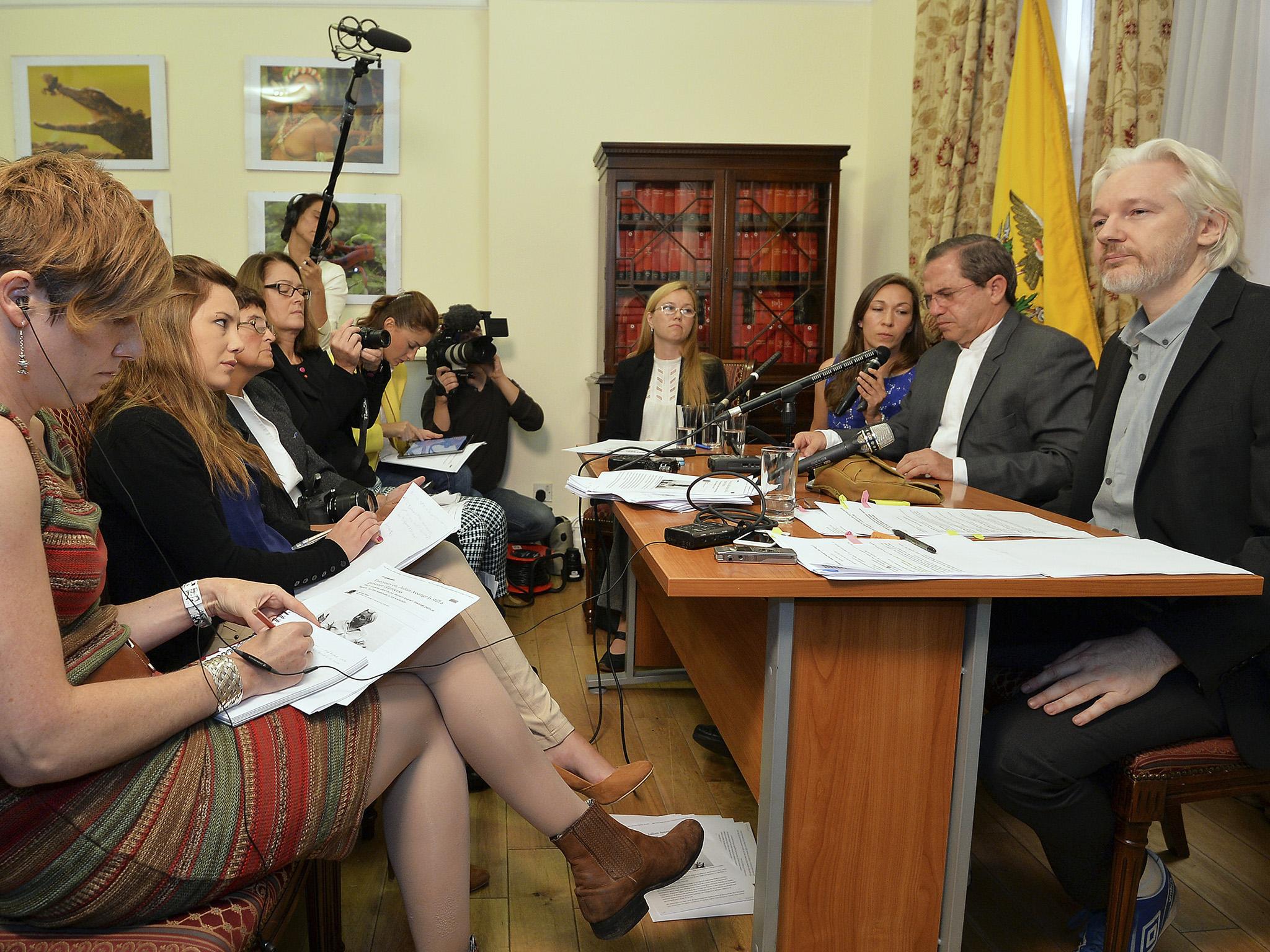
August
Mr Assange tells a press conference he will be leaving the embassy soon following speculation that he is seeking hospital treatment for heart and lung problems. He later brushes off reports that he is about to give up his fight against extradition to Sweden.
September
On behalf of Mr Assange, his legal team submitted a complaint against Sweden and the United Kingdom to the UN Working Group on Arbitrary Detention, claiming his confinement in the embassy amounts to illegal detention.
November
Mr Assange loses a legal move in a Swedish appeal court aimed at revoking his arrest warrant.
December
Mr Assange appears on one of the embassy’s balconies to greet Noam Chomsky, the US philosopher and activist. Hollywood actor John Cusack also visits the WikiLeaks founder later in the month.
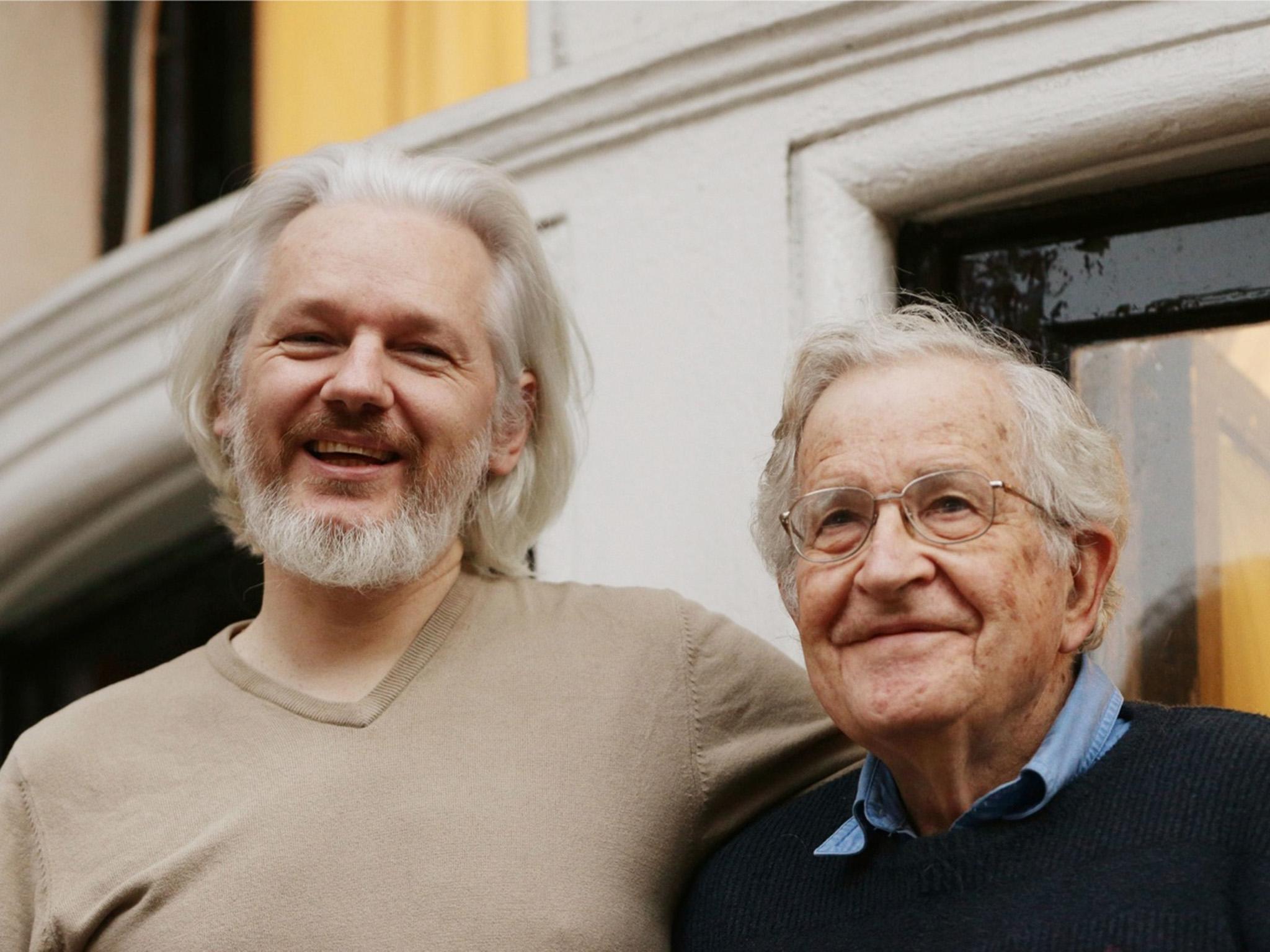
2015
March
Swedish prosecutors ask to question Mr Assange at the Ecuadorian embassy.
June
Mr Assange claims the Swedish prosecutor has cancelled an appointment to interview him at the embassy.
13 August
Swedish prosecutors drop investigations into some of the sex allegations against Mr Assange due to time restrictions. The investigation into suspected rape remains active.
16 August
Foreign Office minister Hugo Swire says Ecuador’s decision to harbour Mr Assange in its embassy has prevented the proper course of justice. He says the UK continues to have a legal obligation to extradite him to Sweden, where he remains suspected of a sexual offence.
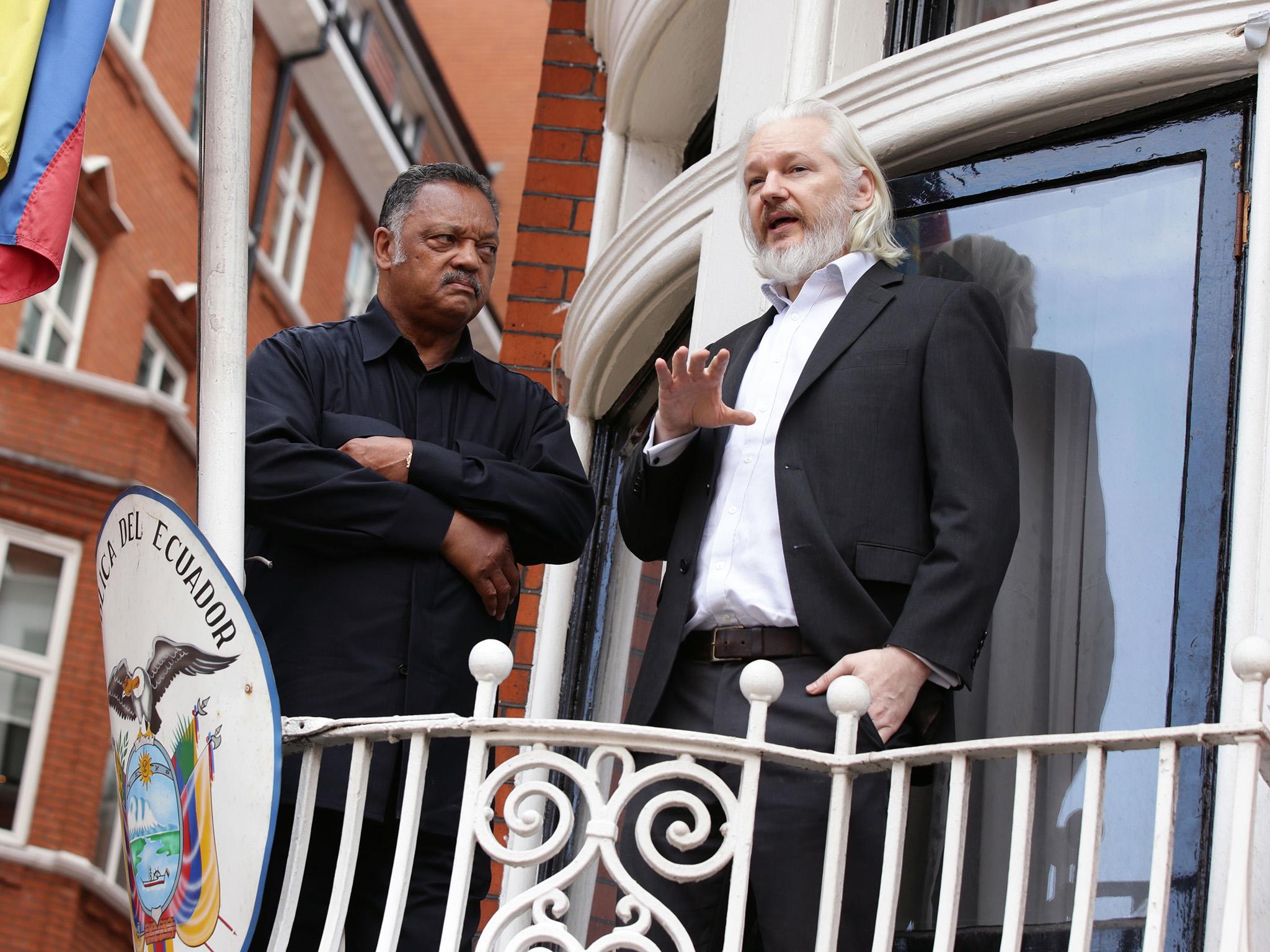
21 August
Civil rights campaigner Jesse Jackson visits Mr Assange inside the embassy. Afterwards, he says: “800 years after the Magna Carta, freedom of the press is right and detention without charges is wrong.”
12 October
Metropolitan Police end their 24-hour guard outside the Ecuadorian Embassy. It breaks a three-year police operation which is estimated to have cost more than £12m.
2016
5 February
The UN Working Group on Arbitrary Detention says Mr Assange is being “arbitrarily detained” in the Ecuadorian embassy and calls on authorities to end his “deprivation of liberty”.
The report is branded “frankly ridiculous” by Foreign Secretary Philip Hammond – a response which Mr Assange described as “insulting”.
9 February
Swedish prosecutors say they are working on a renewed request to interview Mr Assange at the embassy.
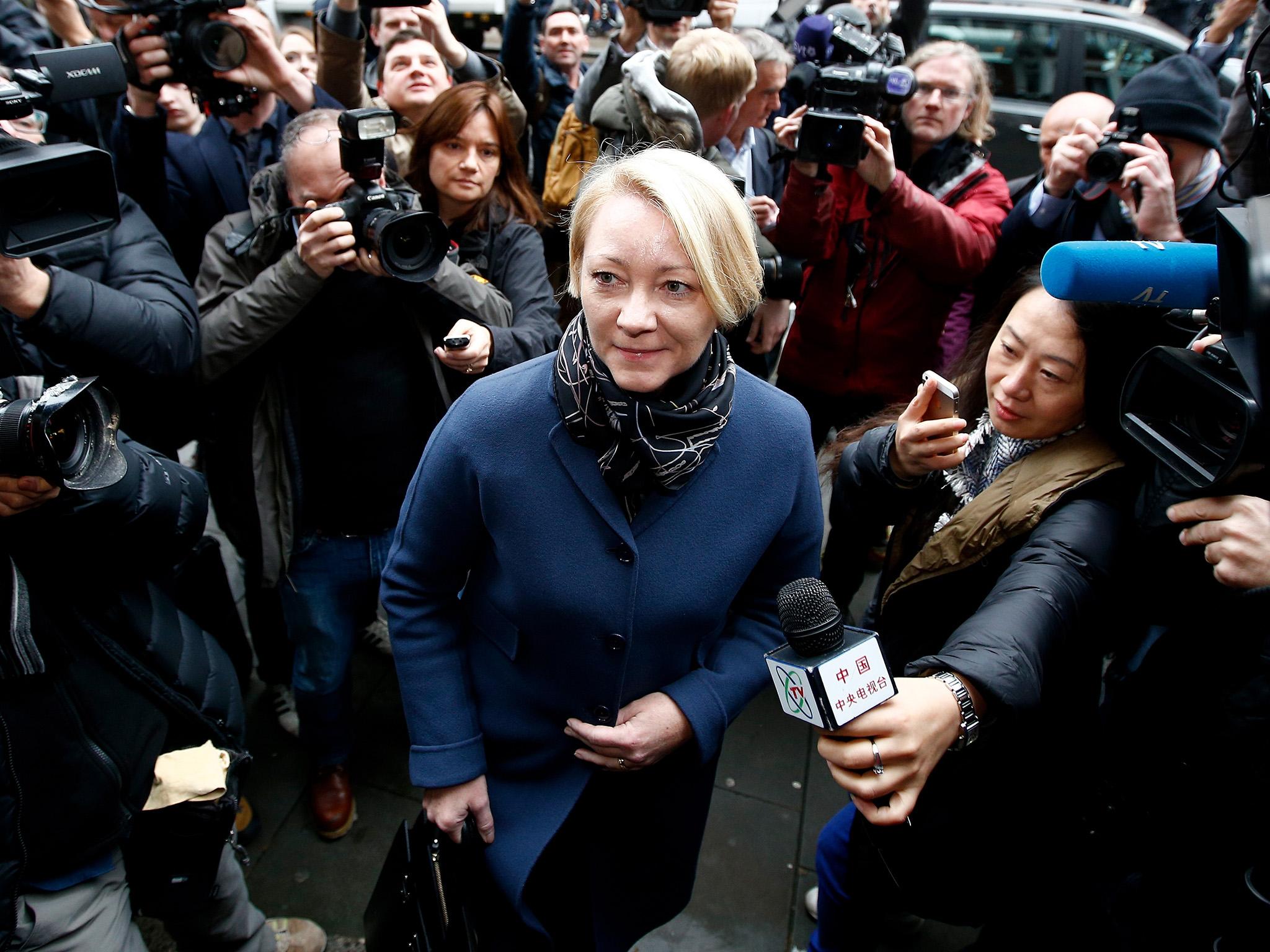
22 February
Lawyers for Mr Assange submit papers to a Swedish court, asking for his arrest warrant to be overturned.
24 March
The Government formally asks the UN to review its finding that Mr Assange was subject to arbitrary detention, saying the opinion was “deeply flawed”.
25 March
A Swedish court refuses to drop an arrest warrant against Mr Assange.
20 June
Ecuador reveals it has received a formal request from the Swedish authorities to interview Mr Assange.
9 August
Mr Assange files an appeal at Sweden’s Svea Court of Appeal, arguing the country must comply with the UN working group’s findings that his deprivation of liberty was unlawful.
11 August
Ecuador announces that Mr Assange will be questioned by Swedish prosecutors in the embassy in London.
16 September
Sweden’s Svea Court of Appeal rejects a bid by Mr Assange to have his sex assault warrant dropped, saying no new information has emerged.
14 November
Mr Assange is questioned over the sex allegation at the Ecuadorian embassy in the presence of Sweden’s assistant prosecutor Ingrid Isgren and police inspector Cecilia Redell. The interview spans two days.
30 November
The Working Group on Arbitrary Detention rejects a request by the UK Government to review the case of Mr Assange.
2017
17 January
Barack Obama’s decision to free whistleblower Chelsea Manning prompts speculation that Mr Assange will end his self-imposed exile.
WikiLeaks tweeted prior to the decision: “If Obama grants Manning clemency Assange will agree to US extradition despite clear unconstitutionality of DoJ [Department of Justice] case.”
19 January
Mr Assange tells a press conference that he stands by his offer to go to the US, provided his rights are respected.
9 March
Former Ukip leader Nigel Farage is spotted leaving the embassy where Mr Assange is being held.
21 April
America’s Attorney General Jeff Sessions says Mr Assange’s arrest is a “priority” for the United States.
PA
Join our commenting forum
Join thought-provoking conversations, follow other Independent readers and see their replies
Comments
Bookmark popover
Removed from bookmarks